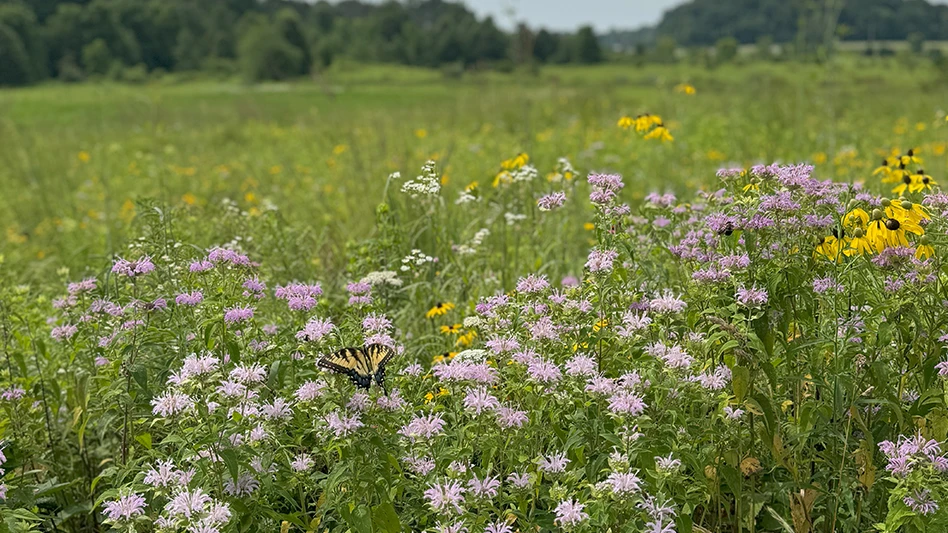
Hardy Greaves, the boy who learned about life through golf in the 2000 movie The Legend of Bagger Vance, had an early appreciation for the game.
“You really love this game, don’t you,” local golfing legend Rannulph Junuh (Matt Damon) asks Hardy.
“It’s the greatest game there is,” Hardy (J. Michael Moncrief) shoots back.
“You really think so?”
“Ask anybody. It’s fun. It’s hard and you stand out there on that green, green grass, and it’s just you and the ball and there ain’t nobody to beat up on but yourself,” Hardy says, adding for proof the example of a club member whose incurable golf swing has broken his toe three times, but who keeps coming back for more. “It’s the only game I know that you can call a penalty on yourself, if you’re honest, which most people are. There just ain’t no other game like it.”
Tens of millions of golfers have a similar love affair with a simple game. But not enough of us take the time to say so and explain to others why we feel as we do, how golf teaches valuable lessons, and why it’s important to our local communities and planet. And that’s a shame because the game and business to which so many devote so much of their time needs our voices and our support.
Beyond the dedicated work being performed by superintendents, golf professionals and managers, and beyond the enthusiastic embrace of the more than 24 million Americans, golfers need to remember that golf and golf courses add so much to lives which are great and small, influential and not, privileged and not. Golf courses serve as critically important open spaces and environmentally safe havens. They also provide water retention and flood-control solutions for many communities. And by employing so many people, they bring economic vitality.
Here are three ways to support golf and expand its impact for generations to come:
1. Promote the game and the virtues it brings to life. Steadfastness. Work ethic. Capability for facing adversity. Jubilation shared with others. The game is a tireless teacher to those who will learn. It is often a superintendent or golf professional who wields the influence that encourages beginners and engages longtime golfers. Their job descriptions should include a role as storyteller, reliving great moments from their time around the game. Talk to your co-workers and staff members and make sure they know historical and environmental characteristics of your course and the wildlife that your golfers might spot during a round.
2. Make your course a learning laboratory. Conduct field days when you and your staff provide seminars and discussion groups regarding best practices for irrigation, fertility, water consumption and arboreal care. Make your teaching efforts more than “how to repair a ball mark” and let golfers enjoy the wonders of course care and upkeep And don’t limit your time and knowledge to your adult golfers. Invite local youth to learn about the course and the efforts you’re making toward sustainability. Help them understand that the world would be a better place if more people were as diligent as superintendents in matters of pesticide use, water-taking practices and land conservation.
3. Take golf to heart. Golf is a heartfelt endeavor. Those attracted to it share an uncommon devotion to the game itself. Golf is a healthy game, as well. Fresh air and a practically unmatched opportunity to get steps in for the day, not to mention beautiful landscapes, sunrises and sunsets, along with special moments with friends and family.Edwin Roald, a member of the European Institute of Golf Course Architects, cites seven important health benefits of golf participation: heart health, brain stimulation, weight loss, stress reduction, increased longevity, low frequency of sport-induced injury, and a good night’s sleep.
The smart millennials at NextGenGolf call out five factors arising from golf participation: good for your body, good for your mind, helps to make new friends and business connections, ability to play the game into old age, and the opportunity to experience and protect nature.
There are so many reasons to make golf more a part of your life and to spread the good word. Young Hardy Greaves sure knew what he was talking about.

Explore the March 2020 Issue
Check out more from this issue and find your next story to read.
Latest from Golf Course Industry
- New grasses up north?
- From the publisher’s pen: Technology diffusion and turf
- Applications open for 2025 Syngenta Business Institute
- Smart Greens Episode 1: Welcome to the digital agronomy era
- PBI-Gordon promotes Jeff Marvin
- USGA investing $1 million into Western Pennsylvania public golf
- KemperSports taps new strategy EVP
- Audubon International marks Earth Day in growth mode





